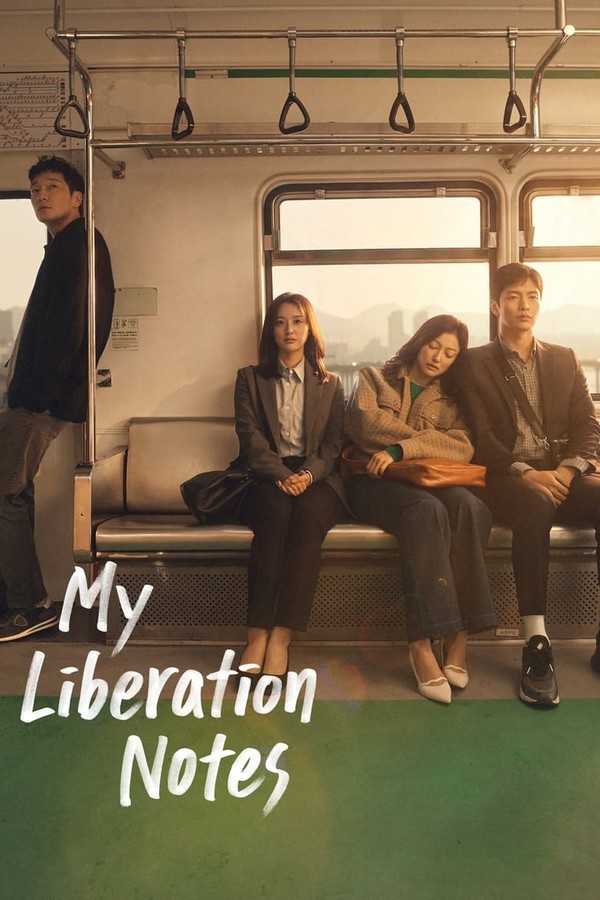The first episode of the new JTBC drama My Liberation Notes was broadcasted on April 9, starring Min-ki Lee, Ji-won Kim, El Lee, and Seok-gu Son. The three siblings, Chang-hee (Min-ki Lee), Gi-Jeong (El Lee), and Mi-Jeong (Ji-won Kim) Yeom, are introduced as residents of Gyeonggi-do who all feel that their youths are drained by their office-job lifestyle. They each have a unique but relatable problem with love — Chang-hee has not fully gotten over his ex, Gi-Jeong has not been able to find true love despite being in her mid-30s, and Mi-Jeong has her money taken away by a senior she loved. Mr. Gu (Son Seok-gu), whose past and even real name are all kept secret, arrives in the village to work for the siblings’ parents who run a farm and a factory, just working silently every day with a drink of alcohol. The plot unravels by showing how each character liberates themselves from their own problems of love, family, and work.

The uniqueness of this show comes from the writing of Hae Yeong Park, who is well-known for the dramas Another Miss Oh and My Mister. The dialogue of the characters expresses their deep, raw emotions candidly, which resonates with what the audience might have experienced in their daily lives but could not express as much as the characters are able to. The uniqueness also comes from Park’s word choices that are not commonly used in everyday life; their originality merges into the show and becomes the main theme. In My Liberation Notes, the word “choo-ang”, which means “to respect and worship”, is introduced when Mi-Jeong asks Mr. Gu to love and worship her to help her regain her damaged self-esteem after her evil boss and the senior who she once loved had deserted her and took her money. The show depicts how the two characters mutually heal their bruises through “choo-ang”ing each other. The word became the buzzword that embodies a strong bond of trust, mutual respect, overcoming and developing, and love.
While the main characters are not ones who can be conventionally seen, many viewers were able to easily sympathize with the life of a commuter living in Gyeonggi-do: wasting hours daily on transportation and having many limitations on entertainment due to time and distance. Portraying the difficulties as commuters from Gyeonggi-do is a very new approach for a drama show, but that freshness caught people’s attention and steered their curiosity to the show. In fact, this show did not gain much interest in its initial release, when its viewing rating was less than 3%. However, the way in which the show reveals the unique topic went viral, and it proceeded to end with a rating of 7.6%.
The drama ends by showing how each character continues to “liberate” themselves from the harsh reality: trying to become a person who is truly loved, trusted, and worshipped. Mi-Jeong and Mr. Gu realize that they have developed and gained self-esteem from their continued relationship of worship, and they each learn to stop their obsession over their past. Chang-hee finds his new job as a funeral director after he learns how to deal with the death of his mother. Gi-Jeong tries to find how she can be accepted as a mother of her boyfriend’s daughter, candidly expressing her feelings without regret. While the ending of the drama is open to interpretation, it definitely elicits that there is no fixed answer to what a right way of “liberation” is, but what we all need is the attitude to continuously aspire to liberate ourselves from our reality.
Despite the praise for its novelty and relatability, My Liberation Notes also faced criticisms for promoting escort bars and alcoholism. The show is narrated in a way that justifies Mr. Gu’s background of having worked at an escort bar and his over-reliance on alcohol. There were also opinions of dislike of the scenes with unrealistic and exaggerated actions, such as Mr. Gu flying a few meters or an AI robot working as a housekeeper, which obstructed the audience’s immersion into the show.
Admittedly, this show will not be liked by everyone, especially if you do not enjoy the dark mood of the initial plot. However, My Liberation Notes may be one of the best shows for those who are struggling with similar experiences as the characters, allowing people to sympathize, get healed, and develop from watching it. For those who have enjoyed the show, a way to further dive into it is to read the script and re-examine the lines to empathize with their true meanings. Whether or not a second season will be produced is not yet confirmed, but the first season of the show is available on Netflix and Tving.

